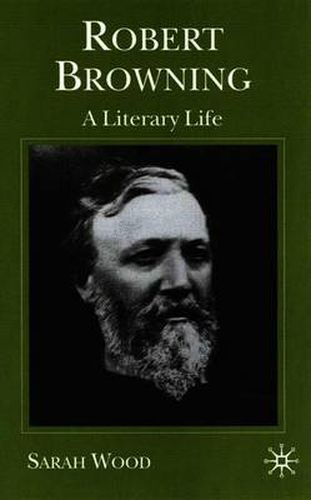Readings Newsletter
Become a Readings Member to make your shopping experience even easier.
Sign in or sign up for free!
You’re not far away from qualifying for FREE standard shipping within Australia
You’ve qualified for FREE standard shipping within Australia
The cart is loading…






This title is printed to order. This book may have been self-published. If so, we cannot guarantee the quality of the content. In the main most books will have gone through the editing process however some may not. We therefore suggest that you be aware of this before ordering this book. If in doubt check either the author or publisher’s details as we are unable to accept any returns unless they are faulty. Please contact us if you have any questions.
Robert Browning both denied and affirmed the value of biography for an understanding of literature. This book narrates the development of his controversial creative life through responses to his work by five key 19th-century figures: John Stuart Mill, William Charles Macready, Thomas Carlyle, John Ruskin and Matthew Arnold. It also relates Browning’s sense of literary vocation to Victorian publishing. Browning emerges as a writer vividly engaged with contemporary assumptions, yet deeply aware of the unaccountability of writing.
$9.00 standard shipping within Australia
FREE standard shipping within Australia for orders over $100.00
Express & International shipping calculated at checkout
This title is printed to order. This book may have been self-published. If so, we cannot guarantee the quality of the content. In the main most books will have gone through the editing process however some may not. We therefore suggest that you be aware of this before ordering this book. If in doubt check either the author or publisher’s details as we are unable to accept any returns unless they are faulty. Please contact us if you have any questions.
Robert Browning both denied and affirmed the value of biography for an understanding of literature. This book narrates the development of his controversial creative life through responses to his work by five key 19th-century figures: John Stuart Mill, William Charles Macready, Thomas Carlyle, John Ruskin and Matthew Arnold. It also relates Browning’s sense of literary vocation to Victorian publishing. Browning emerges as a writer vividly engaged with contemporary assumptions, yet deeply aware of the unaccountability of writing.